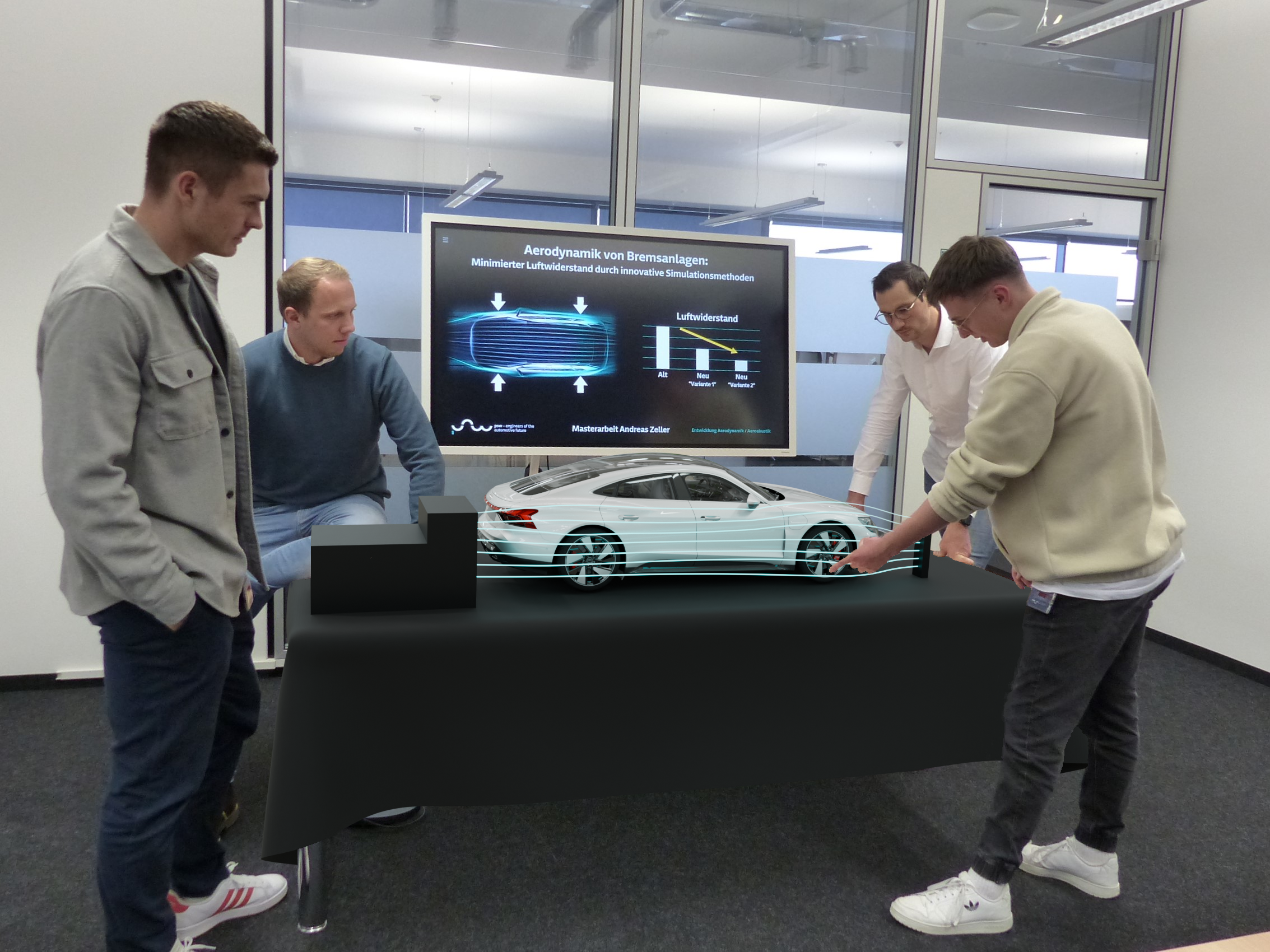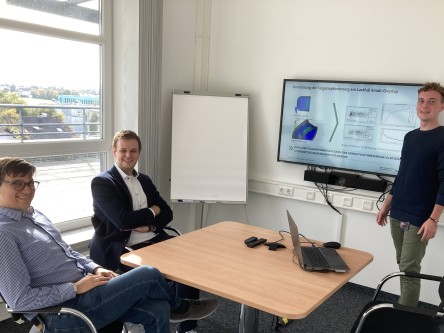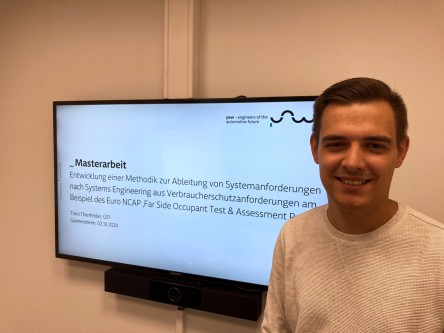“I looked into the aerodynamic impact of braking systems when I did my master’s thesis at PSW. The question was how this can be included to better effect in computer flow simulations,” said Andreas. “I conducted virtual tests on a specific vehicle, investigating various possible ways of rotating a brake disc, and compared the simulation results with test data from the wind tunnel.” The new virtual simulation method allowed Andreas to predict, explain and prevent an anomaly revealed by a wind tunnel reading on a vehicle.
This methodology minimises the risk of expensive component modifications at a later stage in the vehicle development process. Should similar anomalies occur in other vehicles, the solution developed by Andreas will be used again.
“There are many interacting factors in vehicle aerodynamics, and even minor changes can have major effects,” explained Andreas. “A sound methodical approach is therefore time-consuming but necessary. My team at PSW was a great support to me, both professionally and personally.”
Having completed his master’s degree course combining work and study, Andreas is now a permanent employee at PSW and is broadening his knowledge of aerodynamics.


